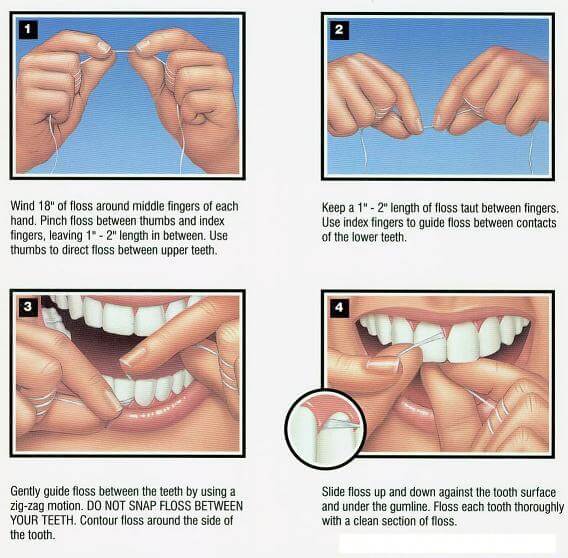Top 10 oral health myths answered by the Dentist!
- Manisha BK

- Jan 7
- 4 min read
The biggest concern for me and my entire family is oral health. Although I am in the medical field, a visit to the dental clinic is something that scares me. I can feel that pain from those dental tools miles away from the clinic.

I always try to keep my oral health clean and get them regularly cleaned at the dental office. Most of us have a lot of questions about our oral health, to which Dr. Shaziya Shaik (Registered GP Dentist) debunks some of the myths and addresses the concerns.
Let us check them one by one.
1. How long should we brush our teeth ?
According to the American Dental Association (ADA), the recommended time for brushing teeth is 2 minutes, twice daily. This time is sufficient to remove plaque and debris from the tooth surface.
2. Are flouride-free toothpastes safe for children?
A fluoride-free toothpaste increases the risk of cavities. However, if the kid is not caries-prone, the dentist might recommend a fluoride-free toothpaste with regular checkups and preventive treatments. It is safe.
3. What is the main ingredient that one has to look for before buying a toothpaste ?
Fluoride is that one component every dentist would recommend to check before buying a tooth paste. Fluoride causes remineralization of enamel and Decreases the chances of decay.* Reverses early tooth decay. Here are different types of fluorides we find in our tooth pastesStannous fluoride, Sodium fluoride, Sodium Monofluorophosphate, and Amine Fluoride.

If you want to opt for fluoride-free toothpastes, hydroxyapatite works similarly to fluoride by strengthening the minerals inside of your tooth enamel.
If you want to opt for fluoride-free toothpastes, hydroxyapatite works similarly to fluoride by strengthening the minerals inside of your tooth enamel.
4. Can sugar in the toothpaste aggravate cavities?
We all know, sugar is sweet but it is not what makes our tooth paste sweet. There are artificial sweetening agents like xylitol and saccharin which are American Dental Association approved. These are sweeter than table sugar and fortunately they don't cause cavities.
5. Can flossing cause anatomical changes in the gums (gaps between the teeth)?
- Flossing doesn't cause anatomical changes in gums. In fact, not maintaining oral hygiene builds up plaque and calculus. Professional cleaning exposes those existing spaces created and occupied by calculus. It should not be mistaken for spaces created due to treatment. Appropriate treatment can heal gums to move back to their position in early stages. - Improper flossing methods do cause injury to gums. Do not exert excessive pressure on floss to push it through teeth which might cut the gums and cause bleeding. Follow a proper method to carefully engage floss in between teeth to remove stuck food particles.
6. How many times should one visit the dentist in an year ?
Visiting a dentist twice a year is advisable. One can get routine check ups done to evaluate oral health. Early detection of caries (decay), gum diseases can be treated in advance if any.
7. Can you please bring some awareness on some common oral health myths that you have heard in your experience?
There are many myths patients come to us with. One among them is, "Extraction of upper teeth leads to loss of vision?"Answer is No. A cranial nerve called Trigeminal Nerve gives out branches to eyes and teeth. The branch of nerves that innervate ocular muscles are different from the nerves that innervate upper teeth (ASA, MSA, PSA). Hence, eyes are safe since nerve supply to eyes is different from the nerve supply to the teeth.
8. As a dentist, what do you think is the worst thing to do to your teeth ?
The worst thing one can do to their teeth is using tooth picks. Rinsing mouth, brushing and flossing is recommended when trying to remove food debris. In case of gum recession, where there are existing large gaps interdentally, inter dental brushes are recommended. But inserting tooth picks gradually pushes the gums away from the tooth causing more spaces which leads to increased food lodgement, caries and loose teeth.

9. What foods damage your tooth enamel ?
Carbonated drinks, sticky sugary foods, vigorous brushing can damage enamel.

10. How often should we change our brushes and tongue cleaners?
Center for disease control and prevention (CDC) recommends swapping tooth brush once every 3-4 months. Same for disposable plastic tongue cleaners. While metal tongue scrapers can be used for a year with periodic disinfection in boiling water.One should look at bristles, brush with worn out bristles should be discarded. In the case of an electric toothbrush, the head should be switched.
Take away
Dental health plays a key role in our day to day lives. Regular brushing, flossing, and rinsing is important. Regular visits to the dentists is a must in your yearly medical calendar.
Always get a recommendation from your dentist about the right kind of toothpaste for your oral microbiome.
We heartfully thank Dr. Shaziya Shaik for busting the myths and addressing some oral health concerns.
Authentic information sourced from Dr. Shaziya Shaik BDS, DHA & MOH Registered GP Dentist.





Comentarios